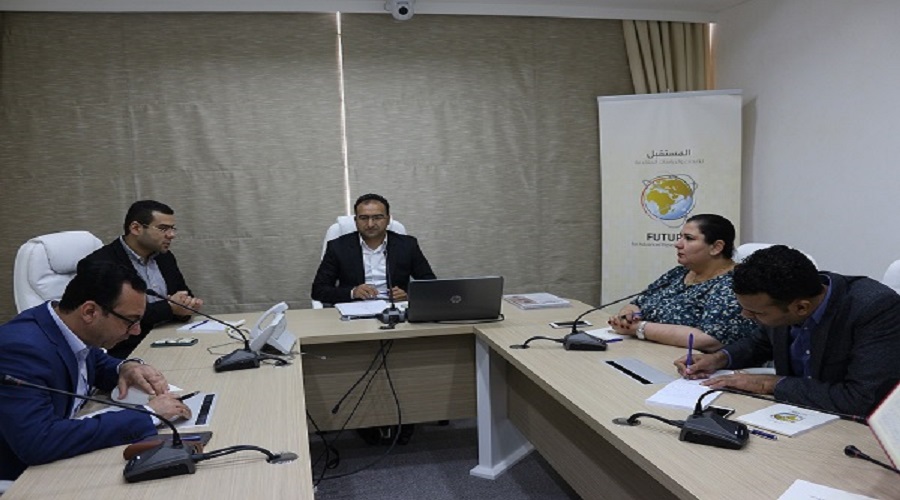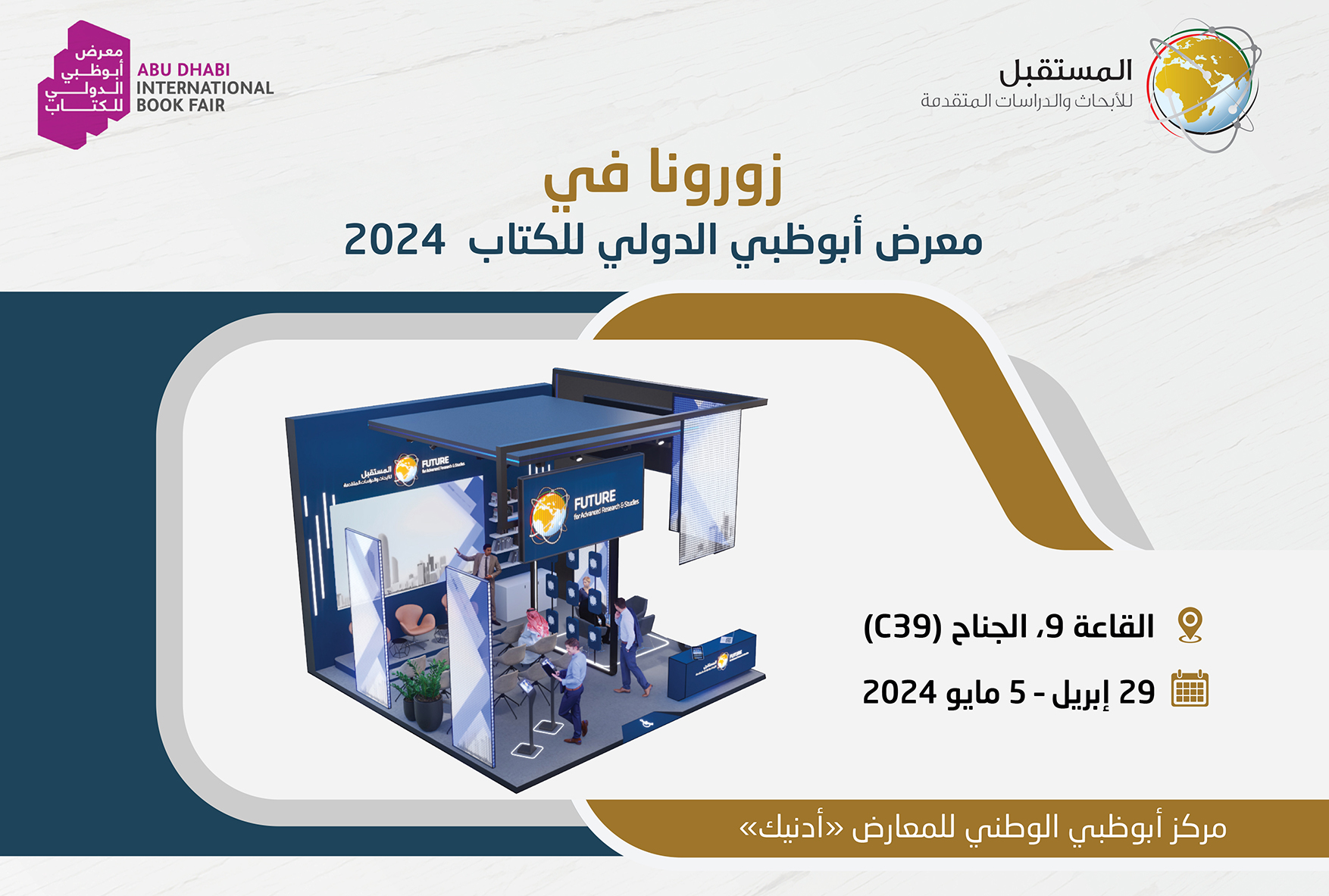On May 25th, 2016, Future for Advanced Research and Studies (FARAS) hosted Dr. Mohammad Al-Hashemi, Professor of Political Science and Constitutional Law at Ibn Zohr University (Agadir), and a member of the Executive Board of Center for Studies and Research in Social Sciences (Morocco). The seminar was titled: “How does Morocco Approach Non-traditional Challenges?” during which Dr. Al-Hashemi expounded the challenges and threats facing Morocco, and the mechanisms adopted by the state to tackle them.
Dr. Al-Hashemi first highlighted that Morocco is vulnerable to two types of threats, namely:
Hard Threats: These include all kinds of threats related to the military arena. For Morocco, hard threats, are defined in the Western Sahara crisis with Algeria, and potential tensions and conflicts with Spain regarding some Moroccan cities (Ceuta and Melilla) currently occupied by Spain. Although the latter is now dormant, as the last clashes between Morocco and Spain on this issue dates back to 2004, however, it could erupt once again at any moment.
Soft Threats: Currently the most significant threats for Morocco, and are known as non-traditional security threats, and are linked to demographic, economic, social and religious circumstances.
In this context, three non-traditional threats are facing Morocco. Dr. Al-Hashemi explained them as follows:
1- Waves of migration:
The waves of migration witnessed by the Kingdom of Morocco is considered one of the non-traditional phenomena, as the Kingdom has been, for long periods, an exporting country. Nonetheless, emerging events and developments in the Middle East and Africa made Morocco a recipient country for immigrants. Moreover, the escalation of conflicts in the region resulted in the exodus of a huge number of asylum seekers, which eventually transformed Morocco into a transit country for migration to Europe.
However, because of strict measures applied recently on European air, land, and sea borders, the Kingdom of Morocco turned into a settlement destination for migrants. This development generated new security challenges, which link to the lack of information on migrants’ backgrounds; along with the state’s inability to adapt them geographically within the borders of Morocco. Furthermore, the economic challenge escalated under the pressure of the increasing numbers of migrants who amount to the tens of thousands. On top of that, appears the challenge of integrating migrants within the Moroccan social fabric that lead to fears of escalating economic crimes, related to the attempts of migrants to provide sustenance for themselves and their families.
While facing these challenges and other threats related to the increasing numbers of migrants, King Muhammad VI established a special committee to settle the status of migrants. The state adopted the policy of resettlement and regularization of migrants. This committee received about 100,000 applications, and it resolved the status of approximately 50 per cent of the total. At least, this step succeeded in addressing the criticisms forwarded to Morocco by International Human Rights Organizations.
2- Social Mobilization:
Morocco differs from the rest of nations in this region, regarding having distinguished social mobilization in the Kingdom. That is attributable to the demographic structure of Moroccan society on one hand; and the Algerian experience in the 1990s, which is still present in the memory of the Moroccan people. The devastation suffered by Algeria in that period was an experience that Morocco would not be willing to repeat under any circumstances. Accordingly, there are serious concerns about any radical political transformations. Dr. Al-Hashemi asserted that there was a semi-psychological barrier between the Moroccan people and launching demonstrations. Therefore, the Kingdom of Morocco was not much affected by the wave of the “Arab Spring”.
Moreover, decision-makers in Morocco did not allow for issues to deteriorate further and reach widespread resentment. There were reformation movements from time to time and constant constitutional amendments. It can be said, that social mobilization is continuous in one way or another, in Moroccan society. Even though there are demands for changes and reformation, but all that come under the umbrella of the existing institutions, in what is called mobilization or change within the framework of continuity.
When the 20th February Movement appeared in 2011, it was an unprecedented event. At that time, it represented a security and political challenge. That movement still exists, but it has changed its strategy, as several forms of mobilization appeared in Morocco: utilization of cinema (movies) and art in what was dubbed “Cinema of Struggle”; besides showing plays in the street without any consideration to state restrictions and laws. Moreover, a trend appeared towards what is called “political podcast,” as well as alternative media through the use of social media platforms; to offer different views about current affairs, and this trend caused concern and worries for government agencies.
3- Radicalism and Extremism:
This issue was raised in Morocco since the 1990s under the auspices of Islamic Movements activities in that period. However, the state turned a blind eye on the issue for the sake of facing the leftist political current. But the Islamists became a heavy burden on the government. The turning point came in 2003 when Casablanca and Marrakech suffered major terrorist attacks. Accordingly, strict security measures were applied, and the government launched crackdowns and mass arrests, as 3,000 people were arrested. Harsh verdicts were issued against a huge number of those defendants. Moreover, the Justice and Development Party was threatened to be dissolved, because many sources had considered this Party responsible for the terrorist attacks.
After 2003, Morocco adopted a two-dimensional security strategy. The first is merely a security dimension, while the second is the non-security dimension that has targeted the roots of radicalism, to avoid recurrence of such terrorist attacks. The focus was on establishing preemptive measures to abort terrorist operations before implementation.
In 2004, Morocco adopted a policy for reforming religious affairs and preventing the penetration of radical thought and ideologies in Morocco. This policy contained several dimensions, most important of which are:
- Preparation of mosque preachers: That is because the beginning of extremism might start in mosques since attending mosques might be the first religious experience for any person outside familial breeding. The experience of preparing moderate mosque preachers proved successful, as Morocco started exporting religious scholars to many African and European countries, which helped the emergence of what is called “The Moroccan Model of Religiosity.”
- Opening a dialogue with suspects and involved persons in violent acts and radicalism, allowing for many reviews to take place.
- Morocco adopted the “Security Governance Model”. For the first time, the Kingdom established its Supreme Security Council, under the direct supervision of the King. This Council includes the Ministers of Interior, Justice and Defense, along with other individuals interested in security, from outside the circle of traditional security chiefs that were allowed to attend the meetings.
These measures indicate adopting a broad concept of security. Moroccan decision-makers recognized the relation between the economic, social and cultural circumstances on one side and terrorism on the other. Many initiatives were launched to cure the roots of extremism and its favorable environment. For example, in 2004, King Muhammad VI announced the launch of a large project which was called the “National Initiative for Human Development.” It targeted reducing the poverty ratio, fighting marginalization and social exclusion, developing and improving the level of many poor illegal urban areas, and enabling their residents to integrate into the society.
On the other hand, Morocco adopts a “human rights approach” which takes care of human rights in security fields. In fact, many police officers were reprimanded for violations they committed, in the context of reconciliation and enhancing trust between security apparatuses and society.
Finally, Dr. Al-Hashemi emphasized that the most important strength factor for preserving Morocco’s security and stability is the Intelligence Apparatus, which is well-known by its efficiency. It depends on more than any other apparatus on human agents, and that allows gathering a significant amount of information. This merit was clearly evidenced in the recent Brussels terrorist attacks.



